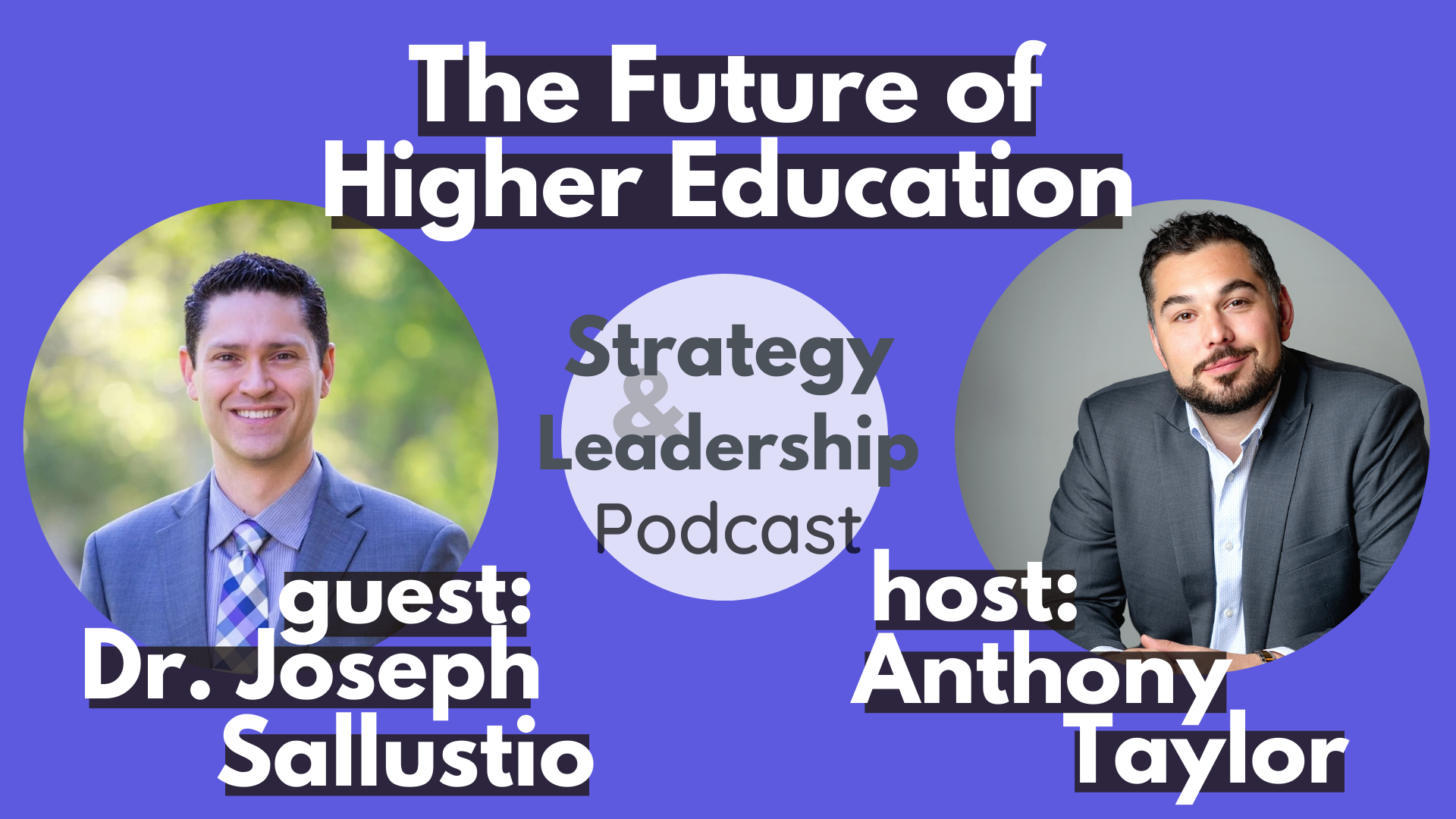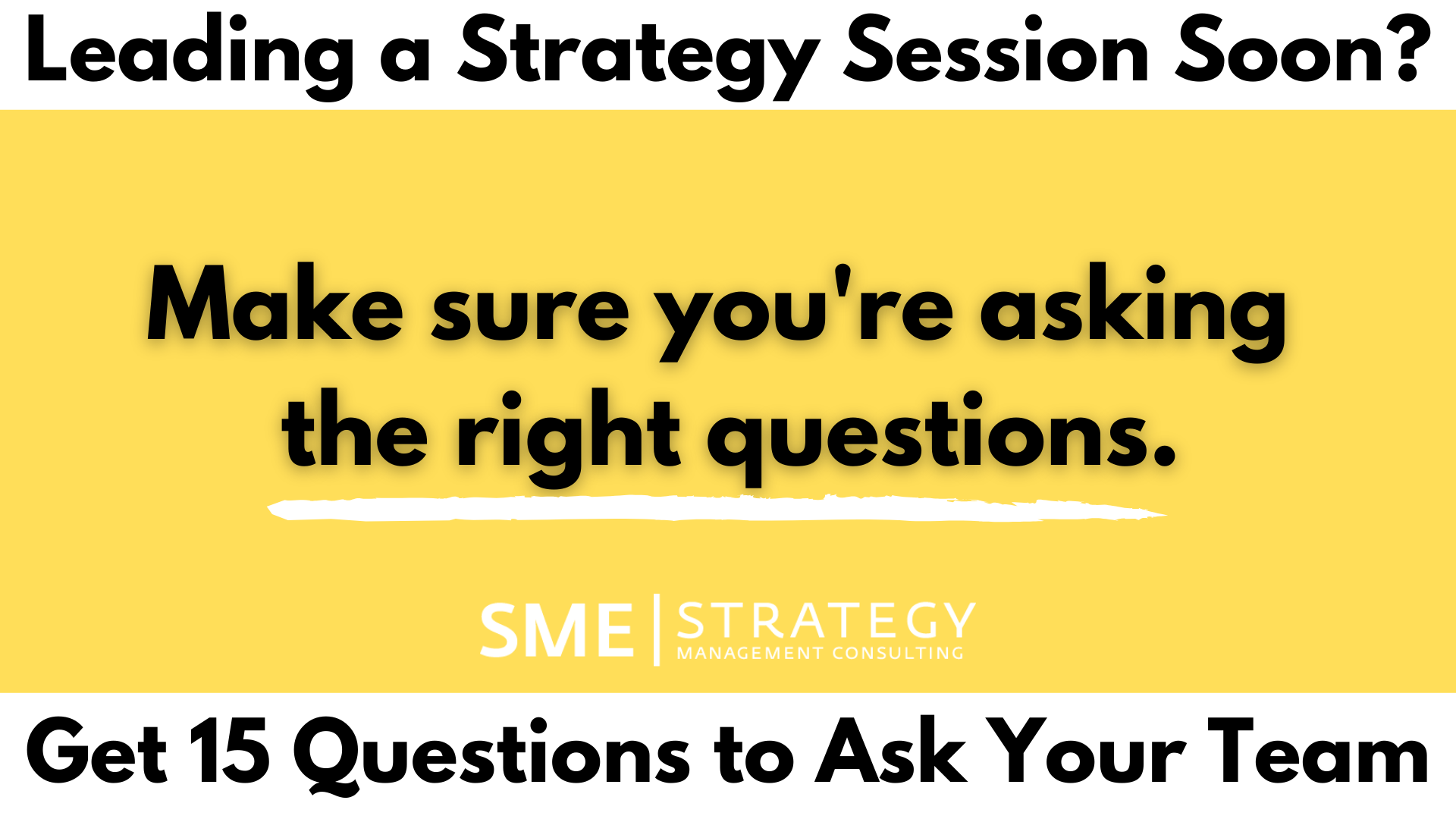
Dr. Joe Sallustio is the Executive Vice President & Chief Operating Officer of Claremont Lincoln University, a school offering socially conscious graduate degrees. With almost 20 years in education and being named as part of the Higher Education Team of the Year in 2019, Joe brings relevant experience from an industry undergoing major change to the show.
-
The strategy development process at CLU
"Students are moving at the speed of technology, businesses are moving at the speed of technology, higher education has to move at the speed of technology".
CLU started as a very small school, with the goal in mind of "how we can learn to treat others as we expect to be treated?" When Joe was called in after the school got it's accreditation, he was able to grown enrollment from 10 to 300 paying graduate students. He first addressed the issue of staff, bring in people who knew how to grow and service students with big expectations. Next, he realized that the school needed to be moving at the speed of technology, like the students and like a business. And last, he brought data into the center of the decision making process.
Is your school or business having a strategy session soon? Make sure you're asking the right questions:
-
Higher education as a business
Joe mentions that some people within the world of higher education are still unable or unwilling to think of it as a business, which it fundamentally is. When there is a transaction of dollars for education, the buyer also holds an expectation regarding the quality of education and outcomes. To prove his point, Joe brings up the very real scenario of a competitor digitally marketing to your own students on a continuous basis, telling them to transfer their credits. In an environment like this, it's critical to think like a business.
-
Getting buy-in and alignment from teachers & administrators
"If university administrators are looking backwards, saying 'I hope things go back to normal', that is like signing a death certificate at this point".
Joe explains that everyone wants to grow the university and grow enrollment, teachers included, but there has to be agreement on the type of university they want to be and the type of student they want to attract. In order to grow enrollment, there may be old policies in place that need to be abolished or adjusted, which will require larger buy-in and alignment from school administrators. Finally, he discusses the importance of buying into the future, saying it will never go back to normal completely, now the public has been exposed to online learning and its flexibility.
-
Looking forward to the future of education
"When schools close, it will be because they couldn't compete, not because their education was outdated or not valuable".
Joe talks about how schools will need to look more like a technology company in terms of speed and agility if they want to deliver education to digital natives who've grown up with this technology. Big brand name institutions will make a push into the digital learning space and quickly learn they don't have the capacity, meaning policies will need to be broken down to make room for the forward thinkers. Lastly, Joe predicts an increase in collaboration, partnerships and consortiums with other schools, businesses and industry.
Create your own strategic plan by enrolling in our course (without needing to hire anyone):
-
The impact of online badges and certifications
Joe explains that universities need to be aware of and prepared for the reality that there are other ways to learn. While the traditional degree may still be very well worth getting, there are other ways for students to improve their skills. He mentions lifelong learning, which means a student may be in and out of their education for a span of 60 years. Students will take a combination of for credit courses and non credit courses, online and on the ground, and stack these skills over their entire lifetime.
To learn more about Claremont Lincoln University and their socially conscious graduate degrees, visit their website: Claremont Lincoln University. To learn more about Joe and get in touch, check out his LinkedIn: Dr. Joe Sallustio.




